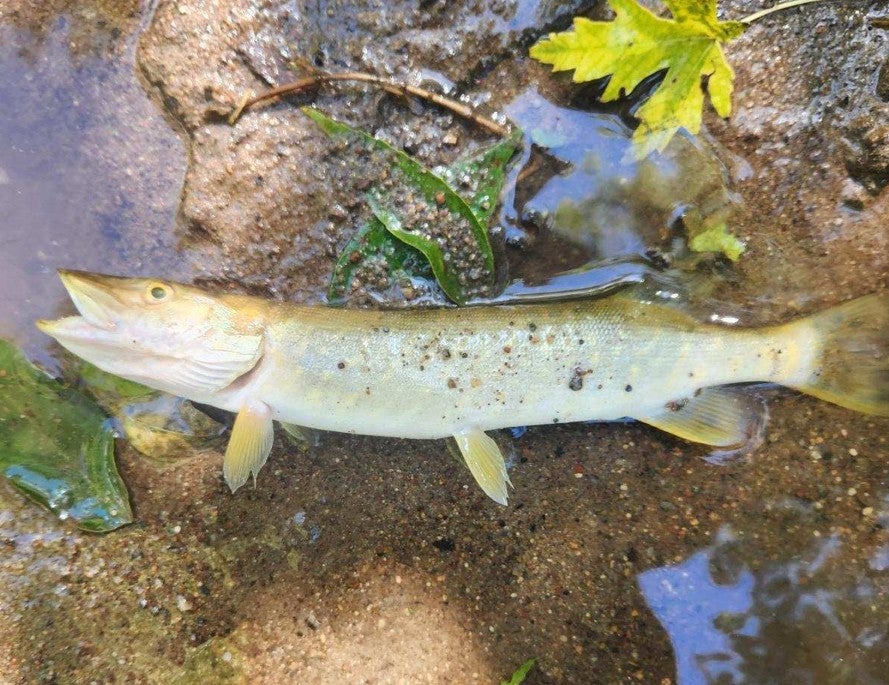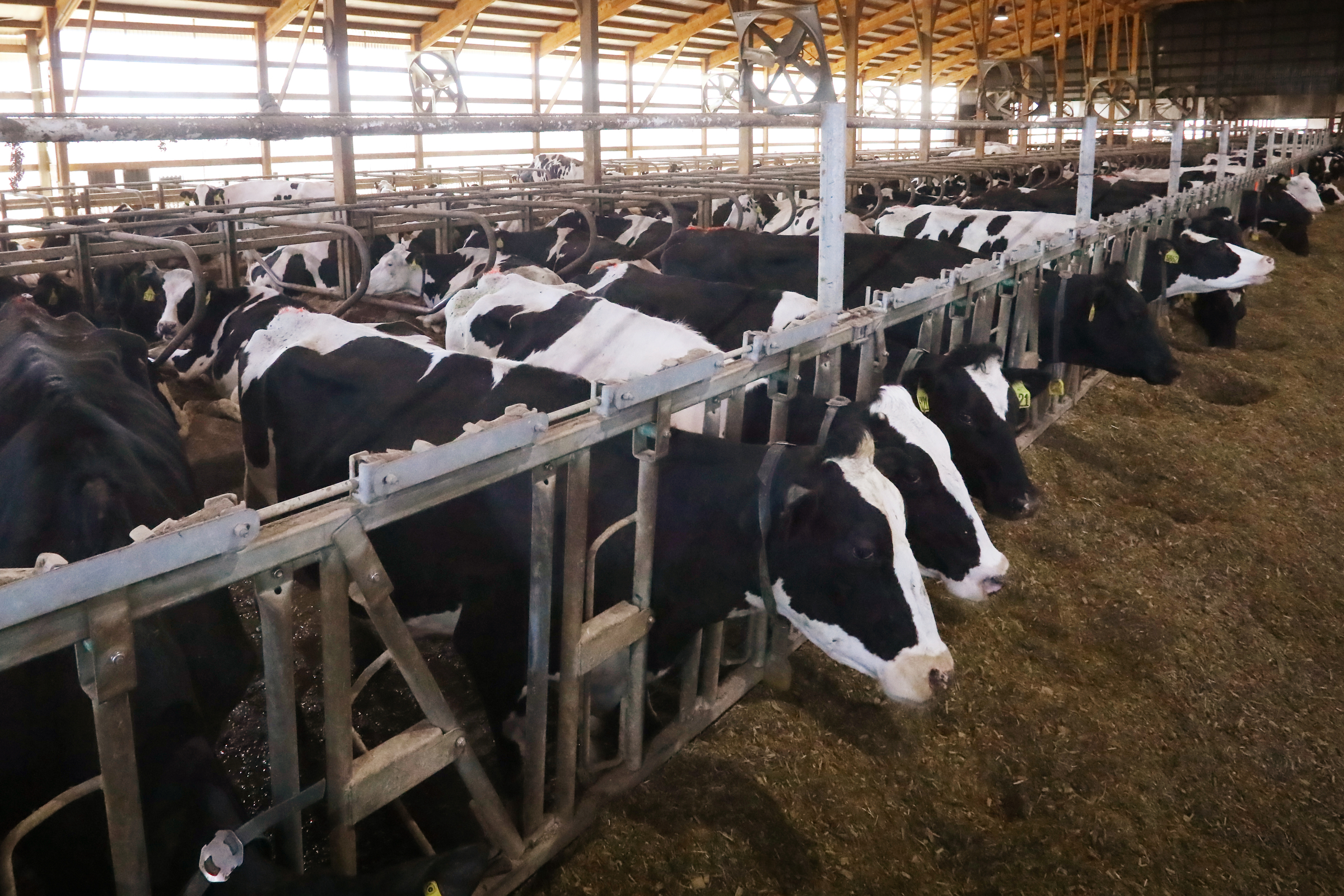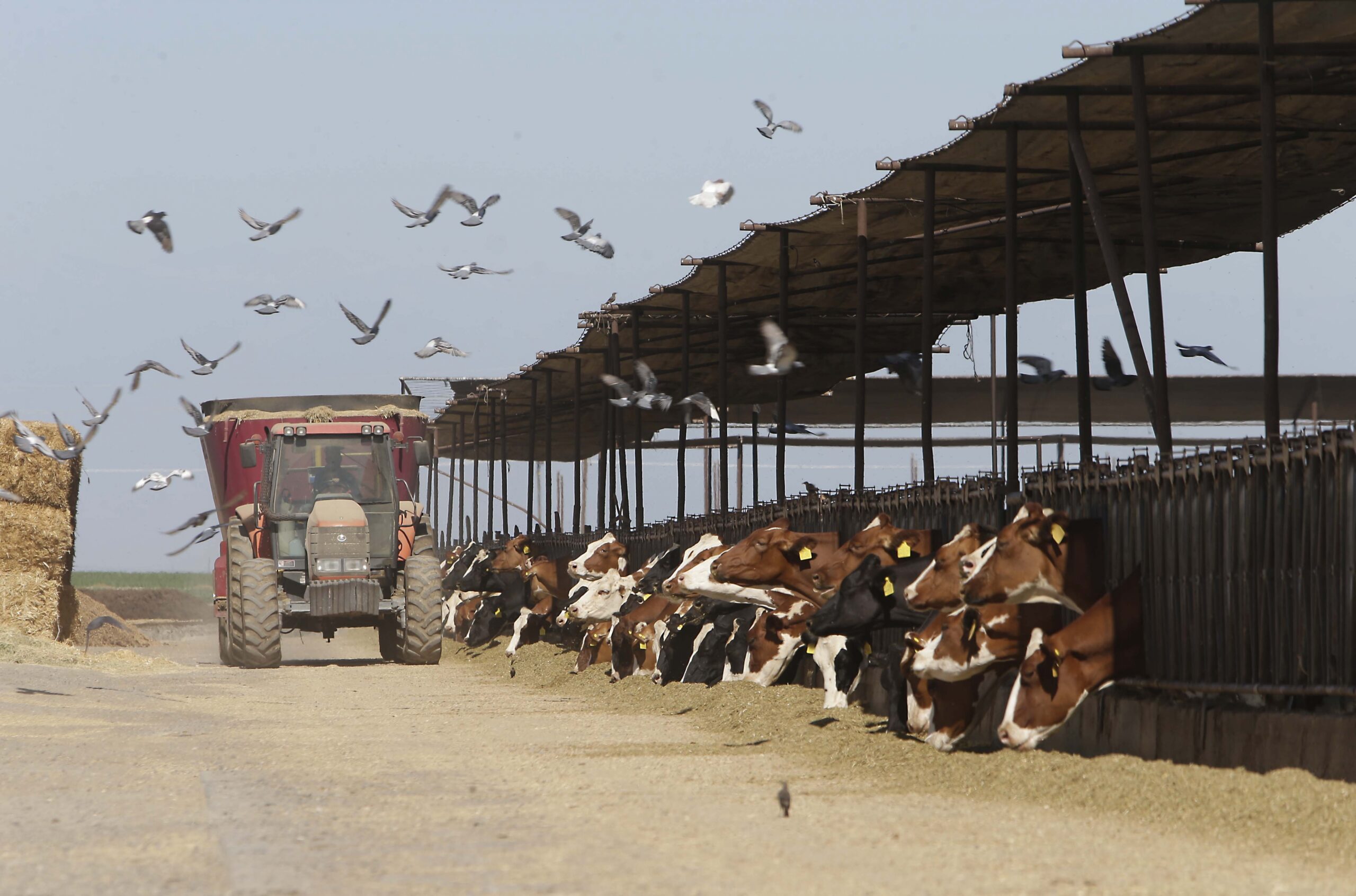A Milwaukee County Circuit Court judge is allowing several environmental groups to challenge a settlement between the state Department of Natural Resources and the Dairy Business Association.
The DBA sued the DNR last summer, claiming the agency did not follow procedure when updating which measures concentrated animal feeding operations, or CAFOs, can use to control runoff.
In October, the DBA and the state reached a settlement in which the DNR agreed to rescind the changes.
News with a little more humanity
WPR’s “Wisconsin Today” newsletter keeps you connected to the state you love without feeling overwhelmed. No paywall. No agenda. No corporate filter.
But Midwest Environmental Advocates (MEA), Clean Water Action Council, Milwaukee Riverkeeper, Friends of the Central Sands and Wisconsin Wildlife Federation are challenging the settlement. Unlike the DBA, the environmental groups claim the DNR has the authority to strengthen their regulations, and claim the agreement reached between DBA and the DNR doesn’t follow rulemaking procedure because the DNR is loosening rules without allowing public input.
Milwaukee County Circuit Court Judge William Pocan denied the DNR’s motion to dismiss the case Monday and set a scheduling conference for Tuesday, April 24.
“What happens now is that citizens actually have a chance to have a say and have their day in court,” said Kim Wright, MEA executive director.
Wright said the settlement undermines the DNR’s ability to update regulations using their existing authority.
“That’s our public agency and all of us need them to apply the expertise and the resources they have in protection of the public interest and public health. That seems to be diverted with really powerful special interests,” Wright said.
But John Holevoet, DBA’s director of government affairs, said the settlement is a correction to the DNR overstepping their authority.
“What the settlement did was bring us back to a status quo that we had for well over a decade. It took us out of a regulatory sort of quagmire, a bit of uncertainty where we weren’t sure what direction we were going in and put us back on a path that we’ve been on and functioning well on for many years,” Holevoet said.
A spokesman for the DNR declined a request for comment, saying the agency is reviewing the decision to determine next steps.
Wisconsin Public Radio, © Copyright 2026, Board of Regents of the University of Wisconsin System and Wisconsin Educational Communications Board.






